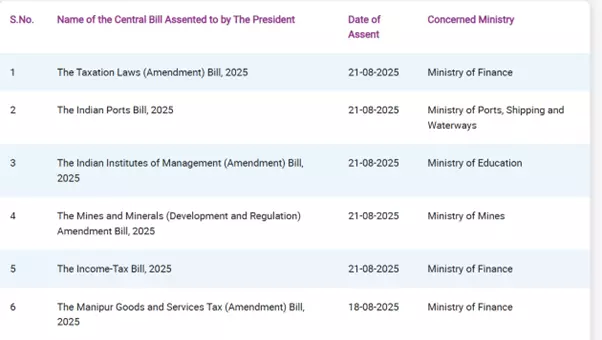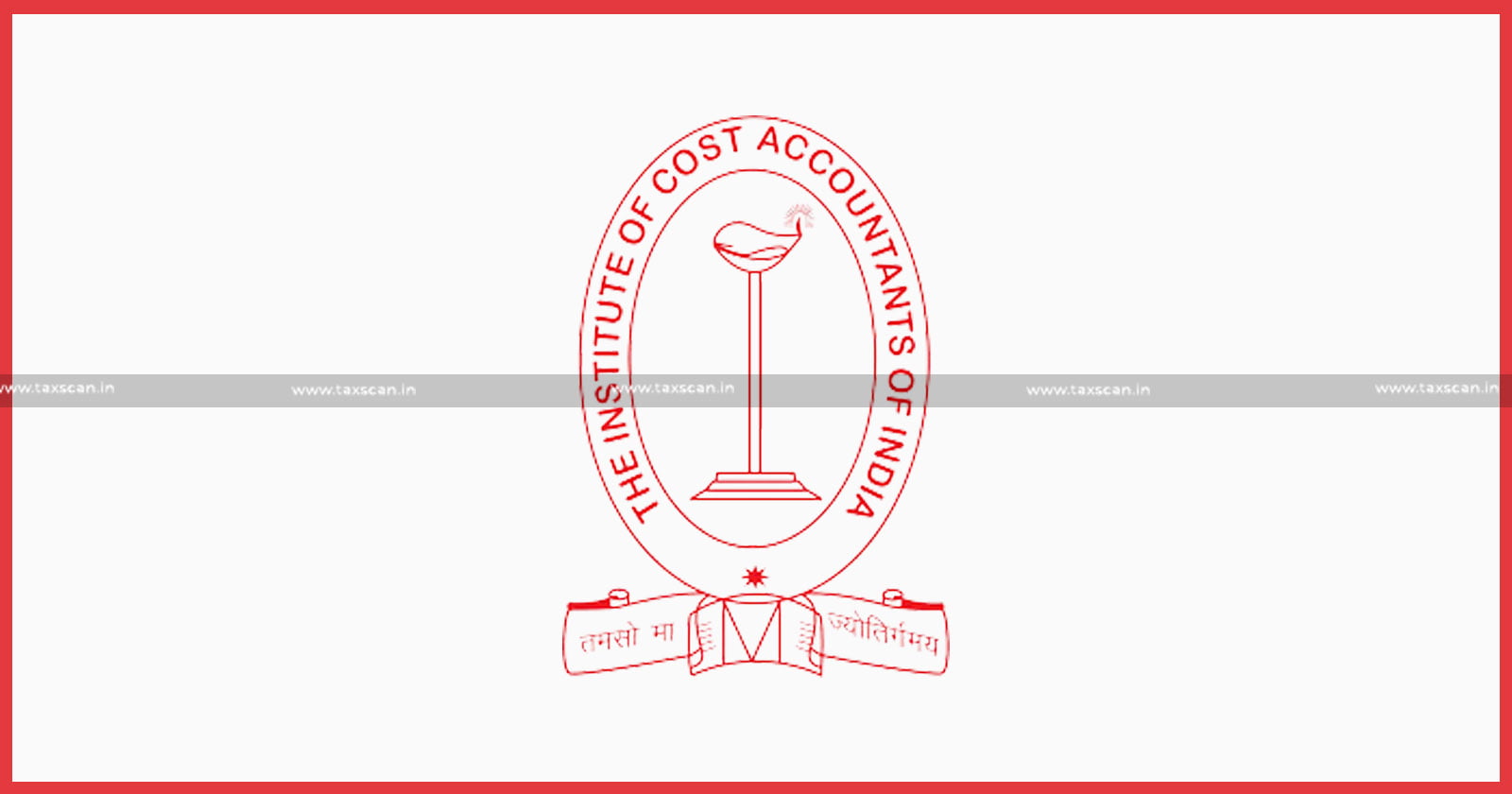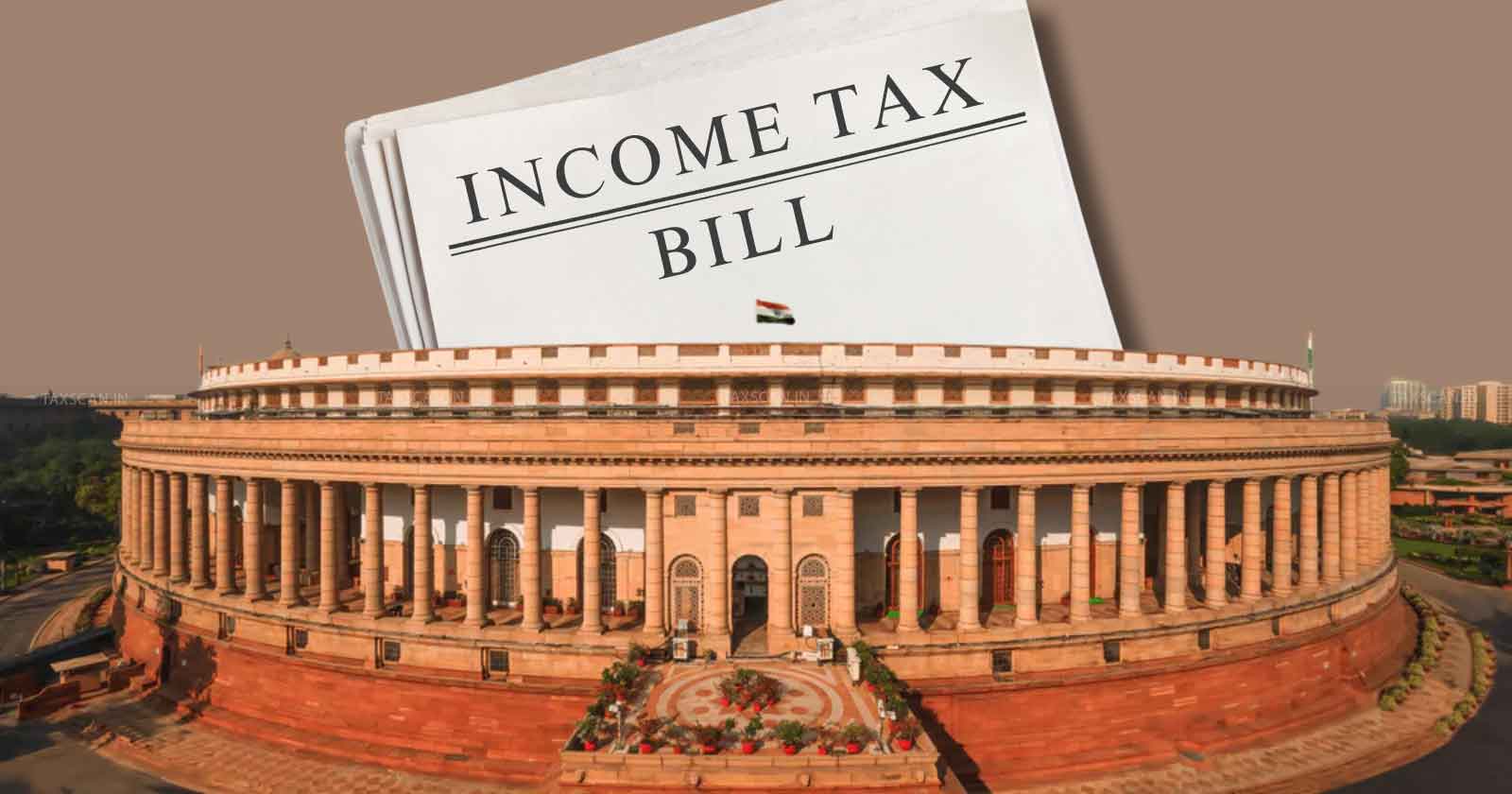[BREAKING] New Income Tax Bill receives President’s Assent, Act will officially come into force from This Date
The new act will come into effect from April 1, 2026.
![[BREAKING] New Income Tax Bill receives President’s Assent, Act will officially come into force from This Date [BREAKING] New Income Tax Bill receives President’s Assent, Act will officially come into force from This Date](https://images.taxscan.in/h-upload/2025/08/21/2079073-income-tax-bill-income-tax-bill-2025-taxscan.webp)
The Income-Tax Bill, 2025, received the President’s assent on August 21, 2025, marking a significant overhaul in India’s direct tax regime. With this, the Bill now becomes law and will be officially notified as the Income-Tax Act, 2025, replacing the decades-old Income-tax Act, 1961.

Income Tax Act 2025 – Simplified, Explained, Referenced: Click Here
The Ministry ofFinance confirmed that the assent paves the way for implementing the new framework, which is expected to simplify language, supposedly making the act easier for common man to comprehend.
The new law, Income Tax Act, 2025 will come into effect from April 1, 2026.
Until then, provisions of the old law remain operational.
Alongside, the Taxation Laws (Amendment) Bill, 2025 also received assent, further amending the existing Income Tax Act, among other Taxation laws.
Notably, the Institute of Cost Accountants of India (ICMAI) had formally expressed its disappointment over the government’s decision to exclude Cost Accountants from the definition of “Accountant” under the proposed Income Tax Bill, 2025.
 Also Read:ICMAI expresses Disappointment Over Exclusion from Definition of 'Accountant' in New Income Tax Bill, 2025
Also Read:ICMAI expresses Disappointment Over Exclusion from Definition of 'Accountant' in New Income Tax Bill, 2025
The Select Committee had justified the sole inclusion of chartered accountants within the term of “accountants” citing specialized training in audit procedures, tax law and accounting standards that they receive during study, as compared to other professional bodies including Cost Accountants and Company Secretaries.
The Select Committee further noted that each professional body has its own domain - with cost audits being the exclusive domain of CMAs while tax audits remained the exclusive domain of Chartered Accountants under both the current and proposed laws.
 Also Read:Observations/Recommendations from Income Tax Bill Lok Sabha Committee Out [Read Press Release]
Also Read:Observations/Recommendations from Income Tax Bill Lok Sabha Committee Out [Read Press Release]
Reacting to this outcome, the ICMAI in its official communication conveyed that it is “deeply disheartened” by the decision.
Further discussions surrounding the bill include Clause 381 which had sparked a debate on the structure and functionality of the Board for Advance Rulings (BAR).
Income Tax Act 2025 – Simplified, Explained, Referenced: Click Here
The clause proposes the constitution of one or more Boards for Advance Rulings by the Central Government which is to be appointed by notification, for providing advance rulings under the relevant chapter. Each board would consist of two members, both officers not below the rank of Chief Commissioner, nominated by the Board.
The government has pitched this legislative reform as a landmark step toward ease of understanding law and taxpayer-friendly administration.
Support our journalism by subscribing to Taxscan premium. Follow us on Telegram for quick updates


